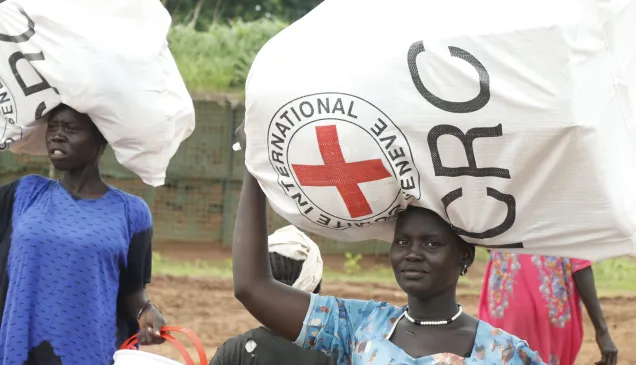Contemporary challenges to IHL – security detention
Deprivation of liberty for security reasons is an exceptional measure of control that may be taken in armed conflict. The administrative detention of persons believed to represent a threat to State security is also being more and more widely practiced outside of armed conflicts. In both situations, there is insufficient due process protection of the rights of persons affected.
Internment in international armed conflicts may be imposed under the Fourth Geneva Convention for "imperative reasons of security". It must end as soon as those security reasons cease to exist or, at the latest, when hostilities cease.
The Convention contains procedural rules that aim to ensure that States do not abuse the considerable margin of discretion they have in interpreting threats to their security. Recent State practice in international armed conflicts has demonstrated significant divergences in the interpretation and implementation of the rules, which has given rise to serious concern.
In non-international armed conflicts the position is no clearer, as Common Article 3 of the Geneva Conventions does not address procedural safeguards in internment (it provides for the application of basic judicial guarantees for persons subject to criminal proceedings). Internment is referred to in Additional Protocol II, but there is little additional guidance on the due process guarantees to be observed. IHL thus provides a basic safety net, which may be supplemented by other bodies of law, in particular human rights law and domestic law.
In recent operations conducted outside armed conflict, the detention without criminal charges of persons suspected of involvement in acts of terrorism has provoked considerable debate, particularly about the lawfulness of this measure under human rights law.
Anti-terrorist legislation in a number of States has increasingly included administrative detention as a preventive measure in the fight against terrorism. This, again, has raised questions about safeguarding the right to liberty of the person under international law and the necessary consistency of approach.
The ICRC has been involved in trying to clarify procedural guarantees that should apply to both internment and administrative detention. In September 2007 it organized an expert meeting on the question in conjunction with the Case Western Reserve University in Ohio in the United States. In September 2008 an expert meeting devoted to procedural safeguards for security detention in non-international armed conflict was held in cooperation with Chatham House in London. The aim was to brainstorm about some of the open legal and practical issues involved in order to create a basis for broader subsequent discussions with other relevant actors.
The ICRC has already developed institutional guidelines that reflect its official position and guide its operations. They have been published under the title Procedural Principles and Safeguards for Internment/Administrative Detention in Armed Conflict and other Situations of Violence.
The document sets out a series of broad principles and specific rules that the ICRC believes should, as a minimum, govern any form of detention without criminal charge.



